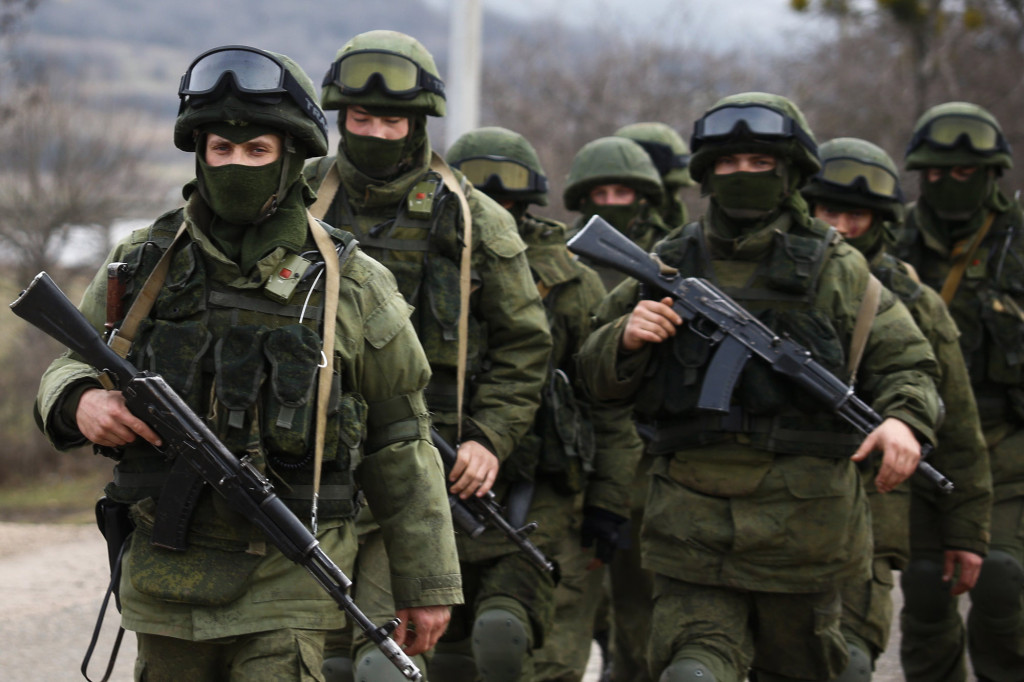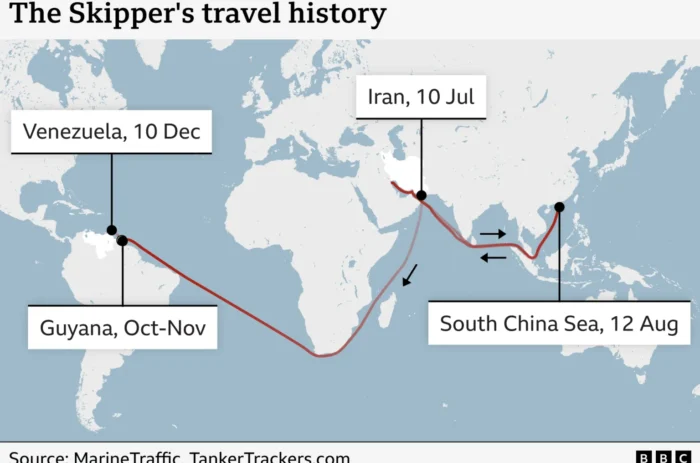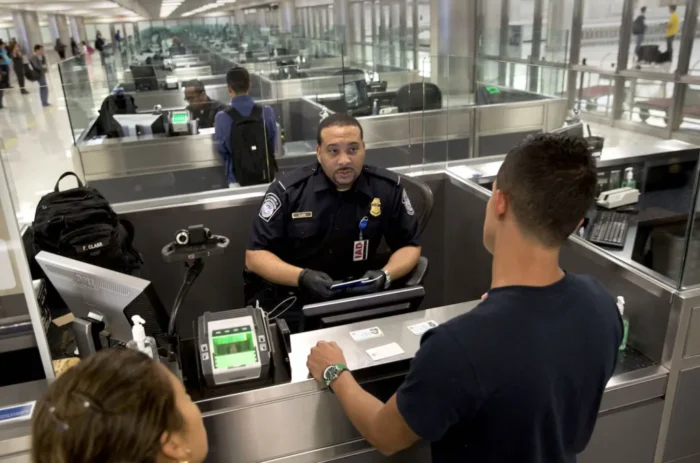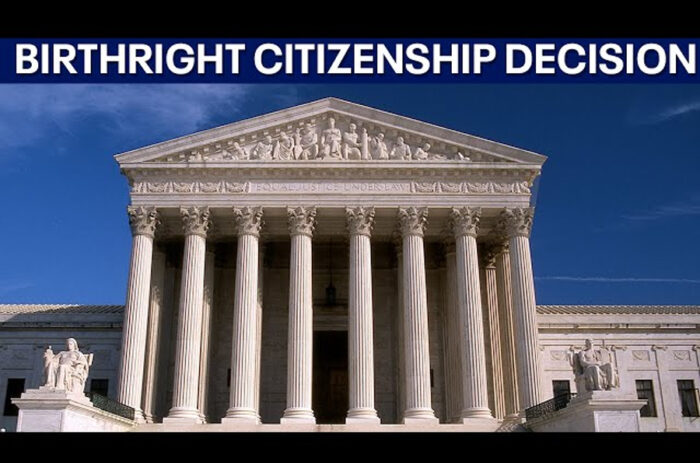redo Jump to...
print Print...

NOTE: Sevastopol is located on the Black Sea coast of the Crimean Peninsula. It has a population of 342,451 (2001). Sevastopol is the second largest port in Ukraine, after the Port of Odessa. Sevastopol has no elected mayor, instead a “Chairman of the Sevastopol City State Administration”, appointed by the President of Ukraine, functions as a mayor. This makes Sevastopol the only city in Ukraine where residents do not get to elect their mayor directly.
The geographic location and navigation conditions of the city’s harbours make Sevastopol a strategically important naval point. It is also a popular seaside resort and tourist destination, mainly for visitors from the Commonwealth of Independent States (CIS) countries. The city continues to be the home of the Russian (formerly Soviet) Black Sea Fleet, and is home to a Ukrainian naval base and has Russian naval facilities leased from Ukraine through 2042. The headquarters of both the Ukrainian Naval Forces and Russia’s Black Sea Fleet are located in the city.
(by Associated Press, posted at New York Post) SEVASTOPOL, Ukraine — Dozens of military trucks transporting heavily armed soldiers [entered] Crimea…Saturday as Russia reinforced its armed presence on the disputed peninsula in the Black Sea. Moscow’s foreign minister ruled out any dialogue with Ukraine’s new authorities, whom he dismissed as the puppets of extremists.
The Russians have denied their armed forces are active in Crimea, but an Associated Press reporter trailed one military convoy Saturday afternoon from 25 miles west of Feodosia to a military airfield at Gvardeiskoe north of Simferopol, over which a Russian flag flew.

Armed men, believed to be Russian servicemen, march outside an Ukrainian military base near the Crimean city of Simferopol. (Photo: Reuters)
Some of the army green vehicles had Russian license plates and numbers indicating that they were from the Moscow region. Some towed mobile kitchens and what appeared to be mobile medical equipment.
The strategic peninsula in southern Ukraine has become the flashpoint in the battle for Ukraine, where three months of protests sparked by President Victor Yanukovych’s decision to ditch a significant treaty with the 28-nation European Union after strong pressure from Russia led to his downfall. A majority of people in Crimea identify with Russia, and Moscow’s Black Sea Fleet is based in Sevastopol, as is Ukraine’s.
Vladislav Seleznyov, a Crimean-based spokesman for the Ukrainian armed forces, told AP that witnesses had reported seeing amphibious military ships unloading around 200 military vehicles in eastern Crimea on Friday night after apparently having crossed the Straits of Kerch, which separates Crimea from Russian territory.
“Neither the equipment, nor the paratroopers have insignia that identify them as Russian, but we have no doubt as to their allegiance,” Seleznyov said.
The amphibious operation appeared to be one of the largest movements of Russian military forces since they appeared in Crimea a week ago.
Seleznyov also said a convoy of more than 60 military trucks was spotted Saturday heading from Feodosia toward Simferopol, the regional capital. An AP reporter caught up with the convoy and trailed it to a Russian-controlled airfield. In the rear of the vehicles, heavily armed soldiers could be seen, though none appeared to have identifying badges or insignia. Soldiers spat at the reporters following them.
A small plane belonging to the Ukrainian border guards was fired on by “extremists” using automatic weapons as it flew near the administrative border of Crimea, but took evasive maneuvers and escaped unscathed, the Interfax news agency reported, quoting Ukrainian officials.
The regional parliament in Crimea has set a March 16 referendum [vote] on leaving Ukraine to join Russia, and senior lawmakers in Moscow said they would support the move, ignoring sanctions threats and warnings from President Obama that the vote would violate international law.
While the U.S. and the EU urged Russia to engage in dialogue with new Ukrainian authorities, the Kremlin has refused to do so, denouncing the change of power in Ukraine as an “unconstitutional coup.”
Russian Foreign Minister Sergey Lavrov said Moscow sees no sense in talking with Ukraine’s new authorities because, in his view, they kowtow to radical nationalists.
“The so-called interim government isn’t independent. It depends, to our great regret, on radical nationalists who have seized power with arms,” he said at a news conference. He said that nationalist groups use “intimidation and terror” to control Ukraine.
Despite that tough talk, the Russian Foreign Ministry said Deputy Foreign Minister Grigory Karasin met Saturday with Ukrainian Ambassador Volodymyr Yelchenko, the first such diplomatic contact since the crisis began. In a terse statement, the ministry said only that they discussed issues related to Russian-Ukrainian ties in a “sincere atmosphere.”
At a news conference in Kiev, Ukraine’s new foreign minister, Andrii Deshchytsi, spoke hopefully about creation of a contact group made up of foreign ministers of various countries to mediate the crisis. Forming the group was an idea discussed during meetings between Ukraine’s prime minister and European Union leaders in Brussels on Thursday.
Deshchytsi said that he learned from mediators that Russia hasn’t “categorically’ refused the idea of permitting a contact group to help broker an end to the dispute.
“The Russians are thinking,” Deshchytsi said, so there is “reason to hope.” He reiterated that the new Ukrainian government understands it is vital to establish good relations with all neighbors, including Russia.
Lavrov also spoke by telephone with U.S. Secretary of State John Kerry on Saturday, a U.S. official said on condition of anonymity to describe a private diplomatic conversation.
Kerry “made clear that continued military escalation and provocation in Crimea or elsewhere in Ukraine, along with steps to annex Crimea to Russia would close any available space for diplomacy, and he urged utmost restraint,” the official said. Kerry and Lavrov agreed to speak again soon.
Russian President Vladimir Putin has said that Moscow has no intention of annexing Crimea, but that its people have the right to determine the region’s status in a referendum.
The Crimean referendum has been denounced by Ukraine’s new government. The U.S. moved Thursday to impose its first sanctions on Russians involved in the military occupation of Crimea. …
An international military mission composed of officers from the U.S. and 28 other nations tried again Saturday to enter Crimea, but it was turned back around the town of Armiansk by armed men.
An AP reporter traveling with the 54 observers from the Organization for Security and Cooperation in Europe said that after the group had stopped, the armed men fired bursts of automatic weapons fire to halt other unidentified vehicles. No injuries were reported.
In Simferopol, meanwhile, a public ceremony was held for the swearing-in of the first unit in the pro-Russia “Military Forces of the Autonomous Republic of Crimea.” About 30 men armed with AK-47s, and another 20 or so unarmed, turned out. They ranged in age from teenagers to a man who looked to be about 60. They were sworn in at a park in front of an eternal flame to those killed in World War II.
Sergei Aksyonov, the Crimean prime minister [who supports Russia], came to the ceremony and was greeted by the soldiers with shouts of “Commander!”
He said their main role, at least until the referendum, would be to “keep the peace.” He said he didn’t foresee any fighting with the Ukrainian soldiers still at bases in Crimea.
“We are not enemies with those soldiers who pledged loyalty to the Ukrainian state. They are not our enemies,” Aksyonov said. He said they could safely leave Crimea if they wanted to.
In the week since Russia seized control of Crimea, Russian troops have been disarming Ukrainian military bases here. Some Ukrainian units, however, have refused to give up. Aksyonov has said pro-Russian forces numbering more than 11,000 now control all access to the region and have blockaded all military bases that haven’t yet surrendered.
On Friday evening, pro-Russia soldiers tried to take over another Ukrainian base in Sevastopol, resulting in a tense standoff that lasted for several hours.
Lt. Col. Vitaly Onishchenko, deputy commander of the base, said three dozen men wearing unmarked camouflage uniforms arrived late Friday. While one group climbed over a wall on one side of the base, another crashed a heavy military truck through the gates, Onishchenko said.
He said Saturday that they turned off power, cut telephone lines and demanded that about 100 Ukrainian troops, who barricaded themselves into one of the base buildings, surrender their weapons and swear allegiance to Russia. The invaders left around midnight.
No shots were fired in and no injuries were reported.
Russia has described the troops who wear green uniforms without insignia as local “self-defense forces.” But Onishchenko said the troops who tried to overrun his base were clearly Russian.
“These were Russian servicemen specially ordered,” he said. “Their watches were set to Moscow time. They spoke with Russian accents and they didn’t hide their allegiance to the Russian Federation.”
An Associated Press report published at NY Post .com. Reprinted here for educational purposes only. May not be reproduced on other websites without permission from The New York Post.
Questions
1. a) Why has Russia’s foreign minister dismissed any suggestion of meeting with Ukraine’s interim leaders?
b) Despite the foreign minister’s refusal to meet with the new leaders, what action has Russia’s Foreign Minsitry taken?
2. Which country has a naval fleet stationed in Crimea?
3. The Russians have denied that their armed forces are active in Crimea. List the evidence the AP offers to back up the assertion that more and more Russian troops are moving into Crimea, Ukraine.
4. What legislative action has Crimea’s regional parliament said they would be taking next week? – how did Moscow respond to the news?
5. Why is Ukraine’s new foreign minister hopeful about the new government’s relations with Russia?
6. What warning has U.S. Secretary of State John Kerry given to the Russian Foreign Minister?
7. How has the Kremlin/President Putin responded to U.S./EU urging them to meet with the new Ukrainian authorities?
8. What actions has Russia taken in Crimea in the week since they seized control?
Background
U.S. and world response to Russian action in Ukraine, as reported by London’s Daily Telegraph on Saturday:
President Barack Obama has made telephone calls to a series of European and Balkan leaders this weekend, in a show of solidarity and support against Russia’s continued aggression in the Crimean region of Ukraine.
The United States and its allies are preparing the grounds for sanctions against Russia and stepping up Nato exercises with military aircraft and ships in the region.
But despite the continued rallying of western opposition to Russia on Saturday and further talk of “costs” to Vladimir Putin, no additional specific measures were agreed upon.
Mr. Obama is in the Florida Keys at a luxury resort this weekend with his wife and children but was still monitoring the tense situation in Ukraine and working the phones with his allies, according to White House aides – portraying his efforts as business as usual “but with warmer temperatures.”
Mr. Obama spoke to David Cameron, Francois Hollande, the president of France, and Matteo Renzi, the prime minister of Italy on Saturday morning.
On Friday evening he had telephoned Angela Merkel, the chancellor of Germany.
Significantly, he also spoke on Saturday with the leaders of Lithuania, Estonia and Latvia, the Baltic states, where the US has deployed F-16 fighter jets in a show of muscular support.
A White House statement said the leaders “reiterated their grave concern” over Russia’s “clear violation of international law” and reaffirmed their support for Ukraine’s sovereignty.
“The President reaffirmed the United States’ unwavering commitment to our collective defense commitments under the North Atlantic Treaty and our enduring support for the security and democracy of our Baltic allies,” the White House statement continued.
The leaders collectively called for Russia to pull its military forces back to their bases from the Crimean peninsula and to allow in unhindered international observers and human rights monitors.
They also collectively rejected the proposed referendum announced in Crimea, where the pro-Russian authorities will ask the population later this month to vote on whether it wants to secede from Ukraine and join with Russia.
The Ukrainian leadership in Kiev was installed after the pro-Russian regime was ousted in a popular uprising late last month. It plans to hold elections in May.
A day after Mr. Obama ordered sanctions over Russia’s military takeover in Crimea, Mr. Putin emphatically rejected the US position, saying his country could not “ignore calls for help” from ethnic Russians in Ukraine.
Daily “Answers” emails are provided for Daily News Articles, Tuesday’s World Events and Friday’s News Quiz.



